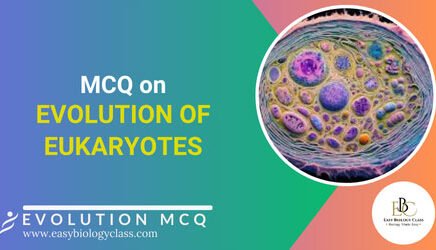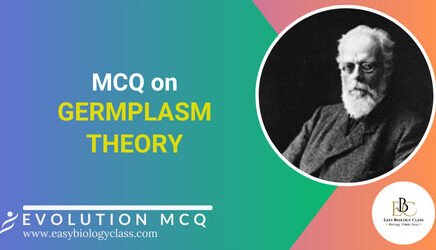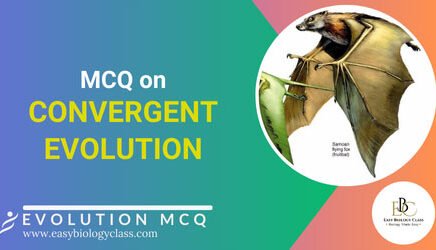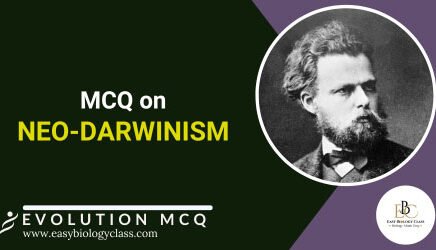
MCQ on Evolution of Eukaryotic Cells with Answers
Eukaryotic cells evolved from prokaryotic ancestors through endosymbiosis, a process where one cell engulfed another, leading to a mutualistic relationship. This theory suggests that mitochondria […]

Eukaryotic cells evolved from prokaryotic ancestors through endosymbiosis, a process where one cell engulfed another, leading to a mutualistic relationship. This theory suggests that mitochondria […]

The evolution of prokaryotes marks the origin of life on Earth, dating back over 3.5 billion years. These simple, unicellular organisms lack a nucleus and […]

The Endosymbiont Theory suggests that certain organelles in eukaryotic cells, particularly mitochondria and chloroplasts, originated as free-living prokaryotic organisms that were engulfed by an ancestral […]

The Germplasm Theory is a fundamental concept in genetics proposed by August Weismann. It suggests that the hereditary material (germplasm) responsible for passing genetic information […]

Convergent Evolution refers to the process by which unrelated or distantly related organisms evolve similar traits or characteristics due to similar environmental pressures or ecological […]

The Modern Synthetic Theory of Evolution combines Darwin’s natural selection with Mendelian genetics, emphasizing evolution as changes in allele frequencies within populations. It highlights five […]

Natural selection is the process where individuals with advantageous traits are more likely to survive, reproduce, and pass on those traits to offspring. It acts […]

Microevolution and Macroevolution are two scales of evolutionary change that describe different processes and outcomes in the evolution of organisms. Microevolution refers to small, gradual […]

Neo-Darwinism, also known as the Modern Synthesis, is the theory of evolution that combines Darwin’s natural selection with Mendelian genetics. It incorporates the understanding of […]